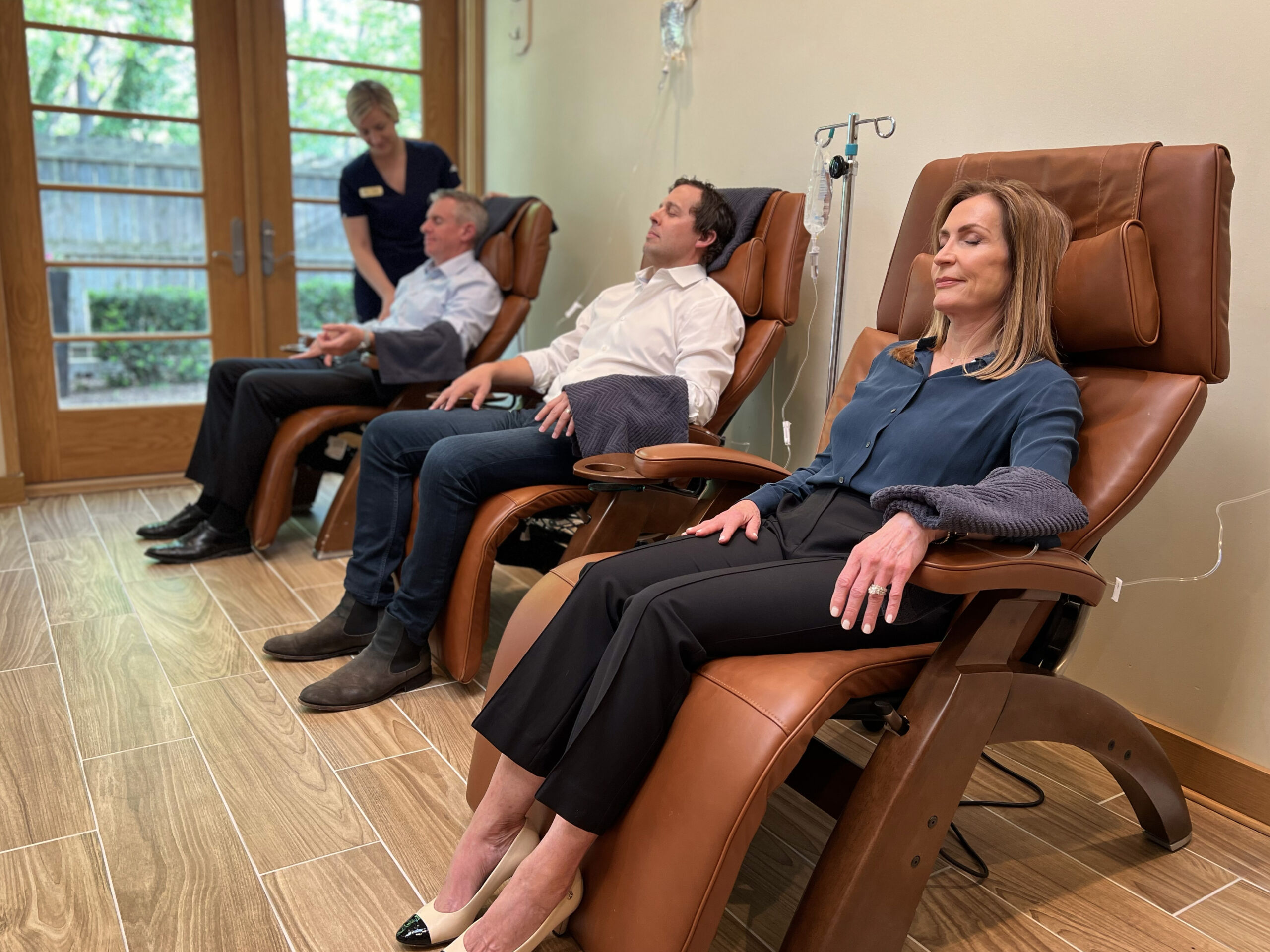It turns out you CAN teach an old dog new tricks. Not only that, but it’s good for your brain. Remember those piano lessons you took as a kid? Memorizing verb conjugations in Spanish? Volunteering at a food pantry? Believe it or not, revisiting some of those long-lost interests or finding similar ones later in life can actually rewire your brain to become healthier and prevent diseases like Alzheimer’s.
You might be thinking that your time has passed for exploring budding interests or picking up a different skill. Maybe you feel trying something new is a little too far out of your wheelhouse, or perhaps it would interfere with your weekly routine. But that is exactly why it’s so important. Stepping out of your comfort zone with unfamiliar activities is what triggers the rewiring of your brain, which is a concept also known as neuroplasticity.
Neuroplasticity is the brain’s ability to reorganize and form new connections and pathways between its cells in response to learning or experiences. Neurons, the cells of the brain, are connected to each other by synapses, and these connection points allow the neurons to communicate and pass along signals and information. The communication that occurs at the synapses allows you to think, feel, remember, and reason.
As you age, the synapses in your brain can become inhibited by the natural formation of plaque. When this plaque accumulates, information passes more slowly and neurons die, which eventually leads to memory impairment and disease in old age.
Thus, creating as many new pathways between neurons as possible — increasing neuroplasticity — helps ensure that the brain stays sharp and fights the plaque buildup. Improving your own neuroplasticity is the key to enhancing cognitive function and memory, learning more effectively, and ultimately preventing degeneration of your brain.
The truth is, when you follow a routine with the same repetitive habits, your brain eventually gets comfortable and stops stretching, working, and “growing.” Certain neural pathways can actually weaken and then stop working after a while if you don’t challenge your brain, leading to a faster decline in cognitive function.
Luckily, improving your own neuroplasticity is something you have control over. As challenging as it may be sometimes, the most important way to do this is to get out of your comfort zone as much as possible and try some activities that you may not normally include in your daily routine.
Learn a New Skill
Developing a new skill is one of the best ways to improve your neuroplasticity and increase brain health. Practicing a new or second language, playing an instrument, or learning to knit or paint are just a few of the endless skills and hobbies that you can pick up or restart. All of these have a similar effect on your brain. When you exercise cognitive functions like visual comprehension, short-term and long-term memory, and attention to detail, you engage all areas of your brain. This stimulates neurons to create more pathways with each other, which increases your brain’s plasticity and allows information and neural impulses to travel faster throughout your brain.
Beyond increasing neural pathways, learning a new skill is a helpful tool for bettering your mental health. It can provide a break from everyday stressors, build your confidence and self-esteem, increase your energy levels, and bring a sense of importance and meaning.
Chat with a Friend
Research shows that social engagement with friends, family, coworkers, and acquaintances activates areas of the brain that are important for recognition and decision-making. Using these regions also helps form new pathways between neurons and helps stretch your brain. Social engagement is correlated with increasing the gray matter in your brain, which is critical for its function and for increasing longevity.
Social isolation can play a major role in increasing the risk of future cognitive impairment and even dementia. If you don’t get out much or engage with other people, certain parts of your brain are more likely to become stagnant rather than grow. Eventually, you lose important neural connections and your brain health starts to decline. Combatting social isolation can be as simple as calling a relative for a quick catch-up during lunch, striking up a conversation with people at the gym, or going out with friends on the weekends.
Get Involved in the Community
It’s possible to do something good for your community and your brain at the same time. Getting involved in service for other people and volunteering for important causes increases the cognitive activity in your brain, which helps protect against mental decline in the future. Community service is also correlated with the release of hormones such as oxytocin, progesterone, dopamine, and serotonin, which not only help you feel good, but also help regulate stress and inflammation.
Involvement in the community as a volunteer also works against loneliness and isolation, which — as mentioned earlier — are significant risk factors for cognitive decline. Volunteering can improve self-esteem and self-efficacy, give a sense of meaning or purpose, and boost overall mental health.
Solve a Puzzle
Another way to improve your neuroplasticity and brain health is to step away from passive entertainment via your TV, iPad, or cell phone and try something that activates your brain more, such as a crossword, brain teaser, puzzle, or thinking game.
These activities stimulate both hemispheres of the brain and involve cognitive skills like imagination and memory, which can benefit your brain health in the long run. There are even apps that provide countless “brain training” games on your phone that target neuroplasticity by working the short-term memory, attention span, executive function, and processing ability.
PALM Health also offers a neuroplasticity-focused class for members. The class features activities and exercises that use rhythm and coordination skills to stimulate both sides of the brain, which helps form those new connections between cells and promote creativity and adaptation.
Get Out and Explore
Oftentimes, routines put your brain on autopilot. You can be halfway through the day and realize you hardly remember what you’ve done up to that point. A change of scenery is a helpful way to reawaken certain parts of the brain and get those neurons firing again.
Traveling to another state or country involves a lot more thinking than everyday tasks do. Not only does it require orienting yourself in an unfamiliar environment, but you also may need to navigate language barriers and cultural differences. Putting yourself in a situation where you have no choice but to find resourceful solutions sparks neural activity that ultimately can increase neuroplasticity, creativity, and openness to experience.
You can also challenge yourself the same way locally. Simple changes such as taking a walk in a different neighborhood, switching up the route you take home from work every day, or even just turning off the GPS exercise your brain’s decision-making skills that will come in handy if you ever find yourself dealing with an unexpected situation in the future.
Your brain is your most important asset, so it is critical to keep it healthy. Engaging your mind in activities that may be out of the ordinary for you is one of the best ways to increase your neuroplasticity and combat the onset of memory loss and diseases such as Alzheimer’s or other dementias. If you normally like to stay in, push yourself to attend a social gathering. If you often find yourself using free time to watch TV or scroll endlessly through social media, try to swap it out for a crossword or a brain game app. Explore new hobbies, like taking an art class or a music lesson. Your brain will thank you.
PALM Health is a healthcare company focused on whole-person wellness for people seeking to extend active, healthy years. Our experts in medicine and wellness empower people to transform their health, become more resilient, and feel their personal best in mind and body. Connect with a Navigator to explore your options at 314-801-8898 option 2.








